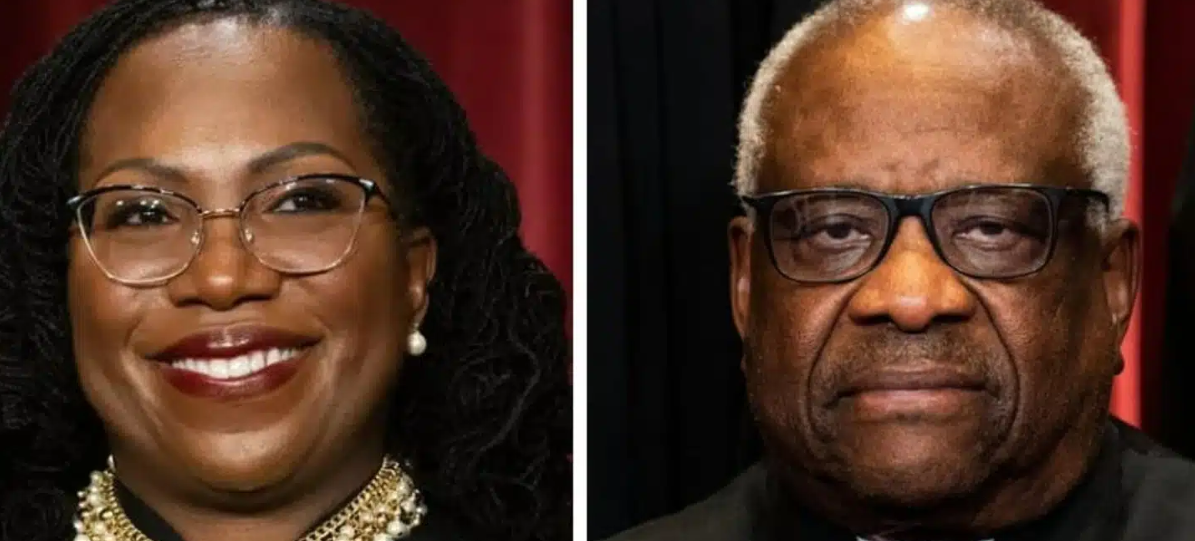Supreme Court Turns Down Chance To Claw Back Abortion Clinic Buffer Zones

The U.S. Supreme Court declined to reconsider its prior ruling that permits buffer zones around abortion clinics, despite opposition from two of its most conservative justices.
In two separate orders, the court opted not to take up challenges against ordinances in Carbondale, Ill., and Englewood, N.J., which prohibit anti-abortion activists from engaging in "sidewalk counseling" with individuals entering abortion clinics.
Justices Clarence Thomas and Samuel Alito expressed their willingness to review the case, but four votes were required for the court to proceed.
Both ordinances were upheld by lower courts based on the Supreme Court’s 2000 decision in Hill v. Colorado, which determined that a comparable Colorado law did not infringe upon the First Amendment.
Since that ruling, anti-abortion organizations have sought to overturn the precedent. Some conservative justices have recently criticized the decision as a restriction on free speech, including in the Supreme Court ruling that eliminated federal protections for abortion, which reinvigorated efforts to challenge Hill.
“Hill has been seriously undermined, if not completely eroded, and our refusal to provide clarity is an abdication of our judicial duty,” Thomas asserted.
“Hill was wrong the day it was decided, and the case for overruling it has only strengthened ever since,” wrote Paul Clement, a seasoned conservative Supreme Court lawyer and former solicitor general, in a petition challenging Carbondale’s ordinance.
Coalition Life, an anti-abortion organization that conducts "sidewalk counseling" in locations such as Carbondale, retained Clement for representation. In an effort to overturn the 24-year-old precedent, the group enlisted the support of 15 Republican state attorneys general, Alliance Defending Freedom, and other anti-abortion advocates.
The city, in its argument against Coalition Life’s appeal, highlighted that its ordinance had already been dismissed.
“Petitioner wants to fast-track a request that this Court overturn Hill just as it overturned Roe v. Wade. This Court should deny that request. This case is a far cry from an ideal—or even passable—vehicle for revisiting Hill,” wrote Neal Katyal, an experienced Supreme Court advocate and former acting solicitor general under President Barack Obama, representing the city.
In Englewood, resident Jeryl Turco challenged a similar law enacted by the city in 2014 to establish a buffer zone around an abortion clinic in response to violent demonstrations from a group called Bread of Life.
Turco, unaffiliated with the group, argued that the ordinance violated her First Amendment rights, restricting her ability to engage in sidewalk counseling.
Her legal representation was led by Jay Sekulow, chief counsel at the conservative American Center for Law and Justice. Sekulow previously served as one of President Trump’s attorneys during his first impeachment trial.
Englewood urged the Supreme Court to reject the case, stating that it “is extremely fact-sensitive and involves material credibility issues that the District Court has resolved. Also, the facts of this case are unique because of Petitioner’s method of sidewalk counseling.”
In an unrelated case, the Supreme Court also declined to review a challenge by civil rights and voting rights organizations seeking to overturn Pennsylvania’s requirement that mail-in ballots include a handwritten date on the outer envelope.
These groups contended that the requirement was unnecessary and had resulted in the invalidation of legitimate ballots.
The justices chose not to revisit a lower court’s ruling that upheld the requirement, rejecting claims that it violated federal law, which bars disqualifying ballots for paperwork errors that are "not material" to determining a voter's eligibility.
In 2024, the Philadelphia-based 3rd U.S. Circuit Court of Appeals determined that although the date requirement “serves little apparent purpose”—since it does not factor into verifying the timeliness of a ballot—it is nonetheless lawful.
The court concluded that the 1964 Civil Rights Act pertains to voter registration rules that establish eligibility to vote rather than the specific procedures governing how ballots must be submitted for counting.